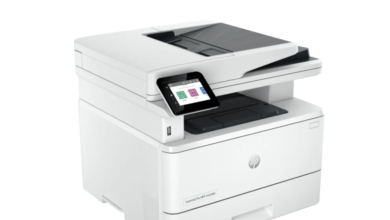“The Benefits of Working with a Certified Retirement Financial Advisor”

Understanding The Role Of A Retirement Financial Advisor
What Is A Retirement Financial Advisor?
So, what exactly is a retirement financial advisor? Basically, it’s a professional who helps you plan for your financial future, specifically focusing on the years after you stop working. They’re not just throwing darts at a board; they’re using their knowledge to guide you through the often-complicated world of retirement savings, investments, and income planning. A good retirement financial advisor can be a real asset in making sure you’re prepared for whatever life throws your way during retirement.
Key Responsibilities Of A Retirement Financial Advisor
What does a retirement financial advisor actually do? Well, a few things:
- Creating a personalized retirement plan: This involves looking at your current financial situation, your goals for retirement, and how much risk you’re comfortable with.
- Managing investments: They can help you choose the right investments to grow your savings and generate income during retirement.
- Providing ongoing advice: Retirement planning isn’t a one-time thing. A retirement financial advisor will work with you over time to adjust your plan as your needs and circumstances change.
- Helping with tax planning: Retirement can have some pretty big tax implications, and a good advisor can help you minimize your tax burden.
A retirement financial advisor’s main goal is to help you achieve financial security and peace of mind during your retirement years. They act as a guide, providing advice and support to help you make informed decisions about your money.
How They Differ From Other Financial Advisors
Okay, so how is a retirement financial advisor different from, say, just a regular financial advisor? It’s all about the focus. While any financial advisor can help you with things like investing and saving, a retirement financial advisor specializes in the unique challenges and opportunities that come with retirement planning. They’re experts in things like Social Security, Medicare, and retirement account rules. If you are looking for a certified retirement financial advisor near me or just a retirement financial advisor near me, make sure they have experience in retirement planning.
Think of it this way:
| Feature | General Financial Advisor | Retirement Financial Advisor |
| Focus | Broad financial goals | Retirement-specific planning |
| Expertise | General financial topics | Retirement income, taxes, etc. |
| Client Stage | All ages and life stages | Pre-retirees and retirees |
| Common Services | Investing, budgeting | Retirement plan creation, income strategies |
Personalized Retirement Planning Strategies
Tailored Investment Approaches
Everyone’s different, right? So, why would your retirement plan be the same as your neighbor’s? A certified retirement financial advisor near me gets this. They don’t just throw your money into some generic fund. Instead, they look at your specific situation – your age, your goals, your risk tolerance – and build an investment strategy that fits you. It’s like getting a custom-made suit instead of something off the rack.
Risk Assessment And Management
Okay, so risk. Nobody wants to lose their shirt, especially when it comes to retirement savings. A good retirement financial advisor helps you figure out how much risk you’re comfortable with. Are you the type who’s okay with some ups and downs if it means potentially bigger gains? Or do you prefer to play it safe, even if it means slower growth? They’ll assess your risk tolerance and then manage your investments accordingly. They also keep an eye on things, making adjustments as needed to keep you on track. It’s not about eliminating risk entirely (that’s pretty much impossible), but about managing it in a way that makes sense for you.
Creating A Sustainable Withdrawal Strategy
So, you’ve saved up a bunch of money. Great! But how do you actually use it without running out? That’s where a sustainable withdrawal strategy comes in. A retirement financial advisor near me can help you figure out how much you can safely withdraw each year so that your money lasts as long as you need it to. They’ll consider things like your life expectancy, inflation, and potential investment returns. It’s like creating a budget for your retirement savings, making sure you don’t overspend and end up in a bind later on.
Planning for retirement is not a one-time event; it’s an ongoing process. Life changes, markets fluctuate, and your needs evolve. A sustainable withdrawal strategy is designed to adapt to these changes, providing you with a reliable income stream throughout your retirement years.
Here’s a simplified example of how a withdrawal strategy might be structured:
| Year | Starting Balance | Withdrawal Rate | Annual Withdrawal | Ending Balance |
| 1 | $1,000,000 | 4% | $40,000 | $960,000 |
| 2 | $960,000 | 4% | $38,400 | $921,600 |
| 3 | $921,600 | 4% | $36,864 | $884,736 |
This is just a basic illustration, of course. A real-world strategy would be much more complex and would take into account a variety of factors. But it gives you an idea of how it works.
Navigating Complex Retirement Regulations
Retirement planning isn’t just about picking stocks; it’s also about understanding a maze of rules and regulations. It can be overwhelming, but a good retirement financial advisor near me can really help you make sense of it all. They keep up with the changes so you don’t have to.
Understanding Tax Implications
Taxes can take a big bite out of your retirement savings if you’re not careful. A certified retirement financial advisor near me can help you develop strategies to minimize your tax burden, both now and in retirement. This might involve choosing the right types of accounts, managing your withdrawals efficiently, and understanding the tax implications of different investment options. It’s not just about avoiding taxes; it’s about planning for them strategically.
Social Security Benefits Optimization
Deciding when to start taking Social Security is a big decision, and there’s no one-size-fits-all answer. Factors like your health, your other sources of income, and your marital status can all play a role. A retirement financial advisor can help you analyze your situation and determine the optimal time to claim your benefits. They can also help you understand how your benefits might be affected by working while receiving Social Security.
Retirement Account Rules And Regulations
Retirement accounts like 401(k)s and IRAs come with a lot of rules. There are contribution limits, withdrawal rules, and required minimum distributions (RMDs) to keep track of. A certified retirement financial advisor can help you stay compliant with these rules and avoid costly penalties. They can also help you understand the different types of retirement accounts and choose the ones that are right for you.
It’s easy to make mistakes when dealing with retirement accounts, especially with all the changing regulations. Having someone who knows the ins and outs can save you a lot of headaches and money in the long run.
Here’s a quick look at some common retirement account rules:
- Contribution limits change every year.
- Early withdrawals usually come with a penalty.
- RMDs start at age 73 (as of 2023, may change).
Maximizing Your Retirement Savings
It’s not just about saving something; it’s about saving smart. Let’s face it, retirement feels like a million years away when you’re in your 20s or 30s. But trust me, it creeps up fast. And the more you can sock away now, the better off you’ll be later. Finding a certified retirement financial advisor near me can really help you get on the right track.
Strategies For Effective Saving
Okay, so how do you actually save effectively? It’s not rocket science, but it does take some discipline. First, figure out your budget. Know where your money is going. Then, set realistic savings goals. Even small amounts add up over time. Automate your savings so you don’t even have to think about it. Treat it like a bill you have to pay each month. And don’t forget to take advantage of any employer matching programs – that’s free money!
- Create a budget and track your spending.
- Set realistic savings goals.
- Automate your savings.
- Take advantage of employer matching programs.
Utilizing Employer-Sponsored Plans
Employer-sponsored plans, like 401(k)s, are goldmines. Seriously. They often come with employer matching, which is basically free money. Plus, contributions are usually tax-deferred, meaning you don’t pay taxes on the money until you withdraw it in retirement. Make sure you understand the investment options available in your plan and choose ones that align with your risk tolerance and time horizon. Don’t just set it and forget it. Review your allocations regularly.
Exploring Additional Investment Options
Don’t put all your eggs in one basket. Once you’re maxing out your employer-sponsored plans, consider other investment options. Individual Retirement Accounts (IRAs) are a great choice. There are traditional IRAs, where contributions may be tax-deductible, and Roth IRAs, where withdrawals in retirement are tax-free. You could also look into taxable brokerage accounts for even more flexibility. A retirement financial advisor near me can help you figure out what’s best for your situation.
It’s easy to get overwhelmed by all the different investment options out there. The key is to start small, do your research, and don’t be afraid to ask for help. A little bit of planning now can make a huge difference in your retirement years.
The Importance Of Ongoing Financial Guidance
It’s easy to think that once you’ve set up your retirement plan, you’re all set. But life happens, markets change, and your needs evolve. That’s why ongoing financial guidance is so important. Finding a certified retirement financial advisor near me can be a game-changer, providing support and adjustments as needed.
Regular Portfolio Reviews
Think of your retirement portfolio like a garden. You can’t just plant it and forget about it. You need to regularly check on it, weed out the bad stuff, and make sure everything is growing as it should. Regular portfolio reviews with your retirement financial advisor are like that. They help you see how your investments are performing, identify any potential problems, and make adjustments as needed. It’s not a one-and-done thing; it’s an ongoing process.
Adjusting Plans Based On Life Changes
Life throws curveballs. Maybe you get a new job, have a kid, or decide to move. These big changes can impact your retirement plan. A good retirement financial advisor helps you adjust your plan to account for these changes. They can help you figure out how to save more, change your investment strategy, or adjust your withdrawal plan. It’s all about making sure your plan still works for your current situation. If you are looking for a retirement financial advisor near me, make sure they offer this service.
Staying Informed About Market Trends
The financial markets are always changing. It can be hard to keep up with all the news and trends. A retirement financial advisor stays on top of these things for you. They can help you understand how market changes might impact your retirement plan and make adjustments as needed. This doesn’t mean they can predict the future, but they can help you make informed decisions based on the current market conditions.
Having someone who understands the financial landscape and can explain it in a way that makes sense is incredibly helpful. It takes a lot of stress out of the process and allows you to focus on other things in your life.
Here’s a simple table showing how different life events might necessitate adjustments to your retirement plan:
| Life Event | Potential Impact | Possible Adjustment |
| Job Loss | Reduced income, potential loss of benefits | Adjust savings rate, explore bridge strategies |
| New Child | Increased expenses, need for college savings | Increase savings, adjust investment risk |
| Health Issues | Unexpected medical bills, potential early retirement | Review insurance coverage, adjust withdrawal strategy |
Finding A Certified Retirement Financial Advisor Near You
Finding the right help for your retirement planning is a big deal. You want someone you can trust, someone who really knows their stuff. Let’s talk about how to find a certified retirement financial advisor near me who fits your needs.
Researching Credentials And Experience
Okay, first things first: do your homework. Don’t just pick the first name you see. Look into their credentials. Are they actually certified? What kind of experience do they have? How long have they been doing this? A good starting point is to check if they hold designations like Certified Financial Planner (CFP) or Chartered Retirement Planning Counselor (CRPC). These show they’ve put in the work and have the knowledge. Also, see if they specialize in the kind of retirement planning you need. Not all advisors are the same.
Questions To Ask During Consultations
So, you’ve found a few potential advisors. Great! Now it’s time to talk to them. Here are some questions to ask:
- What’s your investment philosophy?
- How do you get paid (fees, commission, etc.)?
- What kind of clients do you usually work with?
- Can you give me some references?
- How often will we meet to review my plan?
Don’t be afraid to ask tough questions. You need to feel comfortable with their answers. If they dodge questions or seem vague, that’s a red flag.
Evaluating Advisor Compatibility
This is super important. You’re going to be working closely with this person, so you need to click. Do you feel like they understand your goals? Do they listen to your concerns? Do they explain things in a way that makes sense to you? If you don’t feel a connection, it’s probably not the right fit. Finding a retirement financial advisor near me isn’t just about qualifications; it’s about finding someone you trust and feel comfortable with. Trust your gut. If something feels off, move on. There are plenty of other advisors out there.
It’s easy to get caught up in the technical stuff, but don’t forget the human element. You want someone who’s not only smart but also empathetic and understanding. Retirement planning is personal, and your advisor should treat it that way.
The Emotional Benefits Of Professional Financial Support
It’s easy to focus on the numbers when planning for retirement, but the emotional side is just as important. Working with a professional can really make a difference in how you feel about your financial future. It’s not just about the money; it’s about peace of mind.
Reducing Financial Anxiety
Financial anxiety is a real thing, especially when you’re thinking about retirement. Will you have enough? Will you run out of money? These questions can keep you up at night. A certified retirement financial advisor near me can help ease these worries by creating a solid plan. They can show you exactly where you stand, what your income will look like, and how to handle unexpected expenses. Having a clear roadmap can significantly reduce stress and anxiety.
Building Confidence In Retirement Decisions
Making big financial decisions can be scary, especially when it comes to retirement. Should you invest in this? Should you wait to take Social Security? A retirement financial advisor near me can provide the guidance you need to make informed choices. They can explain the pros and cons of each option, helping you feel more confident in your decisions. This confidence can lead to a more relaxed and enjoyable retirement.
Enhancing Overall Financial Well-Being
Financial well-being isn’t just about having enough money; it’s about feeling secure and in control of your finances. A financial advisor can help you achieve this by providing ongoing support and guidance. They can help you set realistic goals, track your progress, and make adjustments as needed. This ongoing support can lead to a greater sense of financial well-being, allowing you to enjoy your retirement to the fullest.
Having someone in your corner who understands the complexities of retirement planning can be incredibly reassuring. It’s like having a financial therapist who can help you navigate the emotional ups and downs of retirement. This support can make a huge difference in your overall quality of life.
Here are some ways a financial advisor can help:
- Providing a clear financial plan.
- Offering objective advice.
- Helping you stay on track with your goals.
Wrapping It Up
In the end, working with a certified retirement financial advisor can really make a difference. They help you figure out your money situation and plan for the future, which can take a lot of stress off your shoulders. You get personalized advice that fits your life, and they know the ins and outs of retirement plans. Plus, they can help you avoid common mistakes that could cost you later on. So, if you’re thinking about retirement, it might be worth it to reach out to one of these pros. It could save you time, money, and a whole lot of worry.





